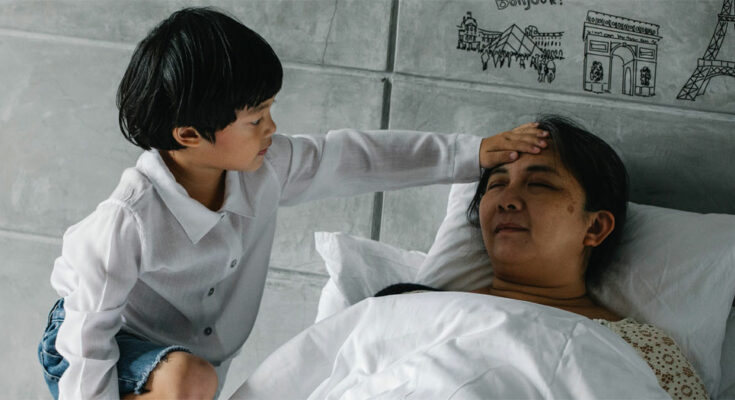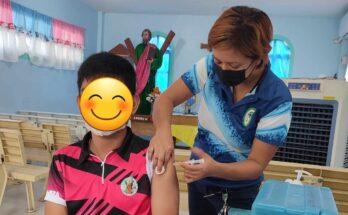In the Philippines, it’s a common practice for people to have their aging parents or elderly relatives like grandparents live with them. However, not all households are prepared for seniors’ needs. Due to their age, some seniors may need assistance in taking certain medications on time or preparing nutritious meals according to their dietary requirements. Also, many homes aren’t designed with the safety of the elderly in mind. Some spaces, for example, possess features that serve as slip, trip, and fall hazards, like a slippery bathroom floor or a living space with uneven flooring.
If you plan to have seniors reside with you in your home, you need to ensure that your place is ready to accommodate them. To help you prepare, here are some essential health and safety tips your households need to take note of when caring for seniors.
Help Them Obtain and Prepare Their Medicines
Many seniors take maintenance medications to treat chronic conditions such as hypertension, heart disease, diabetes, and asthma. When you’re living with aging parents, you should know the kind of prescription drugs they take, in what dosages, in what order, and how often. This way, you can make sure they stay healthy by taking the right medicines every time. Also, check if your loved ones have adequate supplies of their medicines. In case you can’t go to the nearest drugstore to refill their prescriptions, you can help them buy medicine online. Some drug retailers in the Philippines now have online stores that allow customers to order and have medicines and other essentials delivered to their addresses.
If they take several medications, seniors are advised to have a pill box organizer with multiple compartments and labels indicating the days of the week. Even better, it should have separations for “AM” and “PM” medicines. As the person responsible for their care, you should then help them prepare and store the medicines according to the schedule they’ve been prescribed by their doctor. This medicine storage technique is very helpful in preventing adverse drug events among seniors that may happen due to accidents or errors. These include mistaking a pill for another because of their similar appearance or double-dosing because the patient can’t remember if they’ve already taken the drug.
Adverse drug events can be dangerous. For example, a senior who manages Type 1 diabetes might take a double dose of insulin by mistake, causing their blood sugar levels to become too low. This can lead to serious complications like seizures or a coma.
Make Your Home Senior-Friendly
When you have seniors in your home, you must adapt your home to accommodate their safety. For instance, falls are a major safety concern among the elderly because of challenges in mobility. As such, you may need to make basic adjustments or significant modifications to reduce the risk. It can be as simple as keeping the hallways and paths well-lit and clear of objects your elderly relative can trip on, such as shoes, books, or rugs with raised edges. All cords, cables, and wires must also be safely tucked away or hidden because they also serve as trip and fall hazards. You can also install motion-sensor nightlights throughout the house so your elderly loved ones can see their way clearly if they need to move around at night.
In the bathroom, you can install sturdy handrails and grab bars near the toilet and in the shower. Also make sure that the shower floor has non-skid mats or strips to keep your loved one from experiencing accidental slips and falls.
At times, you may need to make major modifications to make your home senior-friendly. If they are using a wheelchair or a walker to move around, for example, you’ll need to install ramps for easier and safer mobility. You may also need to add a bedroom and a bath and toilet on the ground floor of your house so it will be easier for them to access these spaces.
Prepare Nutritious Meals
A lot of seniors become at risk of sustaining injuries due to their limited mobility and physical inability to react quickly to certain events, like a fire in the kitchen. Some seniors may have also developed conditions like arthritis, which can interfere with their ability to adequately handle hot foods without spilling them. Because of such safety concerns, your elderly loved one may no longer cook for themselves, and as such, you’ll need to make arrangements to have their meals be prepared by yourself or by a helper. If you have a busy schedule and can’t regularly cook, you can also opt to prepare meals in advance so your senior relative will have something nutritious to eat.
When preparing meals for seniors, take note of their special dietary requirements. For example, if they have conditions like hypertension and diabetes, you’ll need to prepare foods that are low in fat and without added sugar. Typically, their meals will have to include plenty of vegetables, fruits, lean protein, and whole grains.
Unless otherwise directed by their doctor, you also have to make sure your senior family member drinks at least eight glasses of water a day. Staying hydrated ensures that they will be able to digest their food properly, that their electrolyte levels will be balanced, and that their blood volume will be normal. Hydration also reduces a person’s risk of developing certain cognition-related conditions because cognitive function tends to improve when the brain cells are hydrated.
Take note, however, that since a person’s sense of thirst weakens as they age, many seniors don’t realize they’re thirsty until they’re dehydrated. To help your elderly relative stay hydrated, avoid serving them drinks with high salt, caffeine, or sugar content. Also prepare a container of potable water that they can easily access and drink from throughout the day. You can also serve water through their meals by giving them fat-free or low-fat milk or low-sodium clear broth.
Having your older loved ones live with you is one way you can spend more time with them. But If this is the first time you’ll have seniors living in your home, it’s a good idea to first prepare your household with these health and safety tips in mind. This way, you can properly care for them according to their needs.



